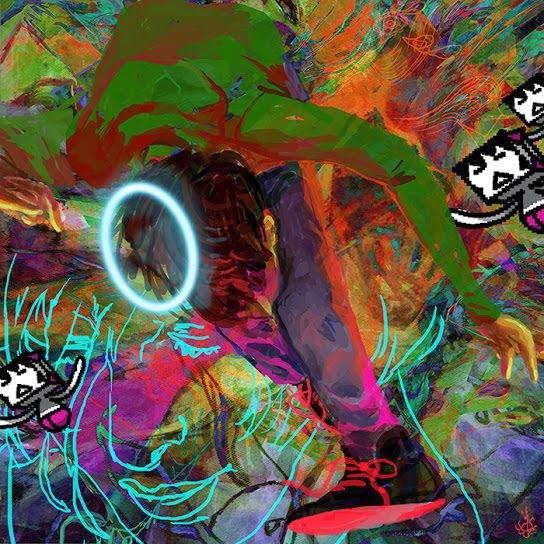I took a liking in how David Mack describes of it in 'Kabuki'.
"As a child I had learned Calligraphy as "The Seventh Martial Art". The kanji characters integrating word and image together and transcending both. Like calligraphy characters, each image takes on a bigger life and meaning when put next to another. Until they seem to have a movement and life of their own."
"I learn a new kind of concentration."
"I enter an Idea Space."
"In Idea Space... New ideas come faster than I can draw them or write them. More like I conduct them."
"More like they conduct me..."
"And I try to keep up."
It's definitely a peculiar way of understanding the psychology of ideas. And perhaps to the layman's it won't pass off as being genuine.
But artists know it. Artist, not as in the person who creates illustrations or sculptures or costumes or music or anything, but artist, the listener and the reproducer of his experience.
As I struggled through resistance, pen in my right hand, anxiety on my left, and a crapload of smog in my mind, I noticed it staring at me. Somewhere it didn't make sense. That I had known it from before. That I have been 'there'. That I know that I wouldn't leave.
But that's another story.
And the next moment, I am the person staring at me. I am the 'idea'. In David Mack's beautiful interpretation, entering his Idea Space.
More than I can translate them.
"Furnace". "Bitch". "Distractions". "Brain Child". A lot of doors. A me of some distant past. Or future, I can't tell. Images of this and that. Some weird way to connect things. Now 'I' am conducting my instrument, I am painting flawlessly, not in a technical sense whatsoever, but flawlessly nonetheless.
And now, now, I am amnesiac. I am back at my body and I bring what I can and yet, yet, I bloody know that it isn't enough.
I guess that's the beauty in it, though.
